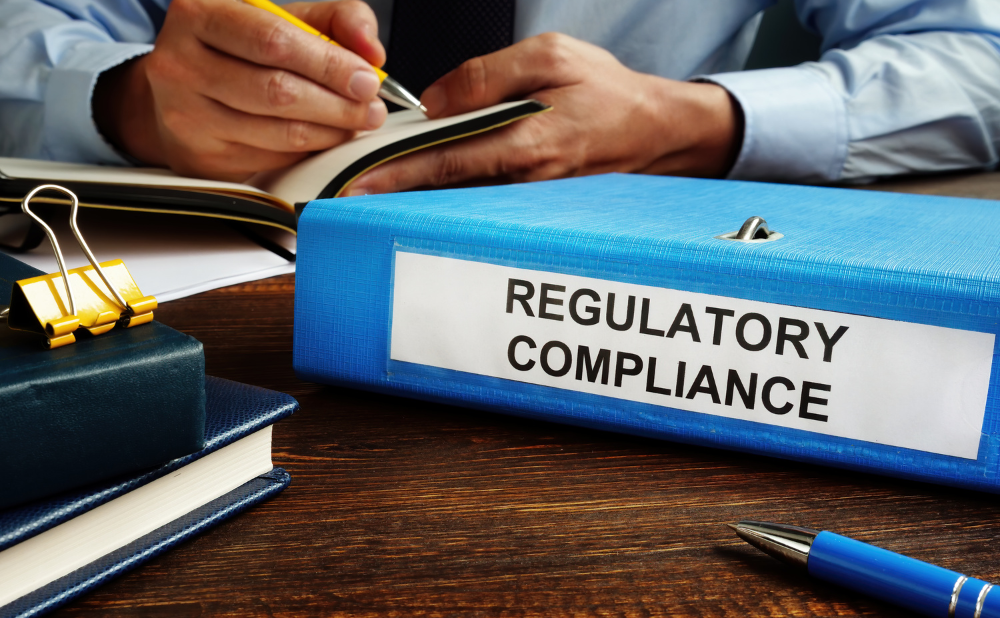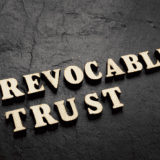Dealing with business compliance can feel like a challenging puzzle, but clarity is achievable. Business compliance means your company adheres to all governmental rules and regulations. This is not merely about paperwork; it is fundamental to your business’s smooth operation and legal protection.
In Pennsylvania, maintaining compliance is particularly significant. The state enforces specific rules that all businesses must observe. Whether you are launching a new venture or manage an established company, staying current with these compliance requirements is essential.
Let’s explore what you need to understand and how Bumbaugh George Prather DeDiana can assist your business in operating lawfully.
Understanding Business Compliance in Pennsylvania
Business compliance in Pennsylvania involves adhering to the legal requirements set by the Pennsylvania Department of State, Department of Revenue, and other state agencies. From the initial registration of your business entity to ongoing obligations like tax filings, licensure, and annual reporting, Pennsylvania businesses must stay proactive to remain in good standing.
Choosing a Business Structure in Pennsylvania
One of the first major decisions you’ll make is selecting a legal structure for your business. In Pennsylvania, the most common options include:
- Sole Proprietorship
- General or Limited Partnership
- Limited Liability Company (LLC)
- Corporation (C-Corp or S-Corp)
Each structure has different compliance obligations under Pennsylvania law, including registration requirements, liability protections, and state tax implications. For example, LLCs and corporations must file formation documents with the Pennsylvania Department of State and follow annual reporting rules under Act 122 of 2022.
Registering Your Business
After choosing a structure, most businesses must register with the Bureau of Corporations and Charitable Organizations. This process usually includes:
- Filing a Certificate of Organization (for LLCs) or Articles of Incorporation (for corporations)
- Appointing a registered office or commercial registered office provider
- Paying the appropriate filing fee
- Applying for a Pennsylvania state tax ID number through the Department of Revenue, if applicable
Ongoing Compliance Requirements
Staying compliant in Pennsylvania doesn’t end at registration. Businesses must also:
- File an annual report with the Department of State (effective 2024)
- Maintain current licenses or permits depending on your industry and location
- Remit state taxes such as sales tax, corporate net income tax, or employer withholding taxes
- Update the Department of State with any changes to business structure or contact information
These steps help ensure transparency and legal recognition while protecting your business from administrative dissolution or penalties.
Need Help Navigating Pennsylvania Business Law?
Before selecting a structure or filing paperwork, it’s wise to speak with an attorney familiar with Pennsylvania’s corporate laws. They can guide you through the decision-making process, help you avoid costly mistakes, and ensure your business starts on the right legal footing.
Business Structures and Their Compliance Implications in Pennsylvania
Your chosen business structure significantly shapes your compliance obligations under Pennsylvania law. For instance, a sole proprietorship requires minimal formalities, while a Pennsylvania corporation must follow more rigorous compliance protocols—such as holding annual shareholder meetings and maintaining detailed corporate records.
A Limited Liability Company (LLC) offers the liability protection of a corporation but with more operational flexibility. In Pennsylvania, LLCs are governed by an Operating Agreement, which outlines management roles, profit distribution, and dispute resolution. Corporations, on the other hand, must adhere to bylaws, issue stock, and track shareholder activity.
Understanding these distinctions from the outset can help you meet state requirements and avoid costly compliance issues later. For example, as of 2024, Pennsylvania now requires most registered business entities—including LLCs and corporations—to file an annual report with the Department of State to remain in good standing.
Here’s a Pennsylvania-specific comparison of key compliance aspects:
| Business Structure | Formation Document (PA) | Liability | Key Pennsylvania Compliance Notes |
|---|---|---|---|
| Sole Proprietorship | No formal filing unless using a fictitious name (requires a Fictitious Name Registration with PA Dept. of State) | Unlimited personal liability | Simplest structure; no separate tax filings; no annual report requirement. |
| Partnership | Partnership Agreement (filed with PA if using a fictitious name); can also register as an LLP | Partners typically have unlimited personal liability unless registered as an LLP | Must apply for an EIN; partnerships file Form PA-20S/PA-65 for state tax; some may require registration with the Bureau of Corporations. |
| Limited Liability Company (LLC) | Certificate of Organization filed with the PA Department of State; Operating Agreement recommended | Limited liability for members | Must file an annual report starting in 2024; EIN required; PA LLCs pay a Capital Stock/Foreign Franchise Tax (if applicable). |
| Corporation (C-Corp or S-Corp) | Articles of Incorporation filed with the PA Department of State; Bylaws adopted internally | Limited liability for shareholders | Must hold annual shareholder and director meetings; issue and track stock; file an annual report; pay PA corporate taxes and may need to register for PA corporate net income tax. |
Maintaining Good Standing
Staying in good standing with the Commonwealth of Pennsylvania is essential to maintaining your business’s legal status, reputation, and ability to operate without interruption. In Pennsylvania, good standing means your business has met all ongoing state requirements, including filing necessary documents—such as the Annual Report (required beginning in 2024)—and paying any applicable taxes or fees to the Department of State and Department of Revenue.
Failing to maintain good standing can result in administrative dissolution, loss of limited liability protections, barriers to securing financing, and complications with entering into contracts, including those with government agencies.
For most entities, the annual report confirms or updates basic company details such as:
- Legal business name
- Principal office address
- Registered office or registered agent
- Names and addresses of key principals or members
This filing helps the state maintain accurate records and ensures your business remains active and recognized under Pennsylvania law.
Key Compliance Areas for Pennsylvania Businesses
Running a business in Pennsylvania requires careful attention to several core areas of legal compliance. Overlooking any of these responsibilities can lead to costly penalties, legal disputes, or even the suspension of your business operations. Here’s an overview of the most critical compliance categories:
- Business Registration: Every business must be properly formed and registered with the Pennsylvania Department of State, including filing formation documents, registering a fictitious name if applicable, and designating a registered office.
- Tax Compliance: Pennsylvania businesses are responsible for meeting both state and federal tax obligations. This includes registering for state tax accounts (such as sales tax or employer withholding tax), filing income and franchise taxes, and ensuring timely payments.
- Employment Laws: Employers must comply with state and federal labor laws, including wage and hour requirements, workplace safety standards (OSHA), anti-discrimination laws, and regulations regarding employee benefits and unemployment compensation.
- Environmental Regulations: Businesses involved in manufacturing, waste disposal, agriculture, or any activity impacting the environment must follow rules set by the Pennsylvania Department of Environmental Protection (DEP) and relevant federal agencies.
- Industry-Specific Requirements: Many professions—such as healthcare, construction, legal services, and food service—have licensing, inspection, or operational regulations specific to their industry.
Each of these areas is governed by detailed state and federal rules. The attorneys at Bumbaugh | George | Prather | DeDiana have deep knowledge of Pennsylvania business law and can provide tailored guidance to ensure your business remains compliant and well-positioned for growth.
The Pennsylvania Business Compliance Checklist
Let’s examine the practical steps for maintaining business compliance in Pennsylvania. This checklist serves as a foundational business guide. Remember, specific requirements vary based on your business and industry.
1. Register Your Business
Making your business official is the foundational step. This involves registering with the Pennsylvania Department of State. The exact business formation process differs based on your chosen business structure, but typically includes:
- Choosing a unique business name and verifying its availability.
- Filing the correct formation documents, such as Articles of Incorporation for a corporation or Articles of Organization for an LLC.
- Paying the necessary filing fees associated with these documents.
- Obtaining an Employer Identification Number (EIN) from the IRS, which is essential for tax purposes and hiring employees. This is often a requirement for initial business setup.
- Appointing a registered agent to receive legal and tax documents.
This initial report of information to the state establishes your company as a legal entity. Some businesses require initial specific filings beyond basic registration.
2. Obtain Necessary Licenses and Permits
Depending on your industry and location, specific licenses or permits may be needed to operate legally. For example, a restaurant requires health permits and potentially a liquor license, while construction businesses often need specific contractor licenses. Effective business licensing involves checking requirements at federal, state, and local business levels.
If your company plans to do business in states other than where it was formed, you may also need to complete a foreign qualification. This registers your business to operate in those additional states. A business license is often specific to your type of operation.
3. Comply with Tax Requirements
Taxes are a substantial component of business compliance. In Pennsylvania, you must register for applicable state taxes, which could involve:
- Sales Tax: If you sell taxable goods or services.
- Employer Withholding Tax: If you have employees, you must withhold income tax from their wages. This is a key part of payroll tax.
- Corporate Net Income Tax: For corporations operating in Pennsylvania.
- Unemployment Compensation Tax: To fund unemployment benefits for former employees.
- Franchise Tax: Some states levy a franchise tax on businesses for the privilege of operating there; Pennsylvania has a Capital Stock and Foreign Franchise Tax.
Proper payroll tax registration is crucial if you have employees. Understand all tax obligations and deadlines to avoid penalties; effective compliance processes help manage these.
4. Follow Employment Laws
If your business employs staff, you must adhere to a comprehensive set of state and federal employment laws. This includes crucial aspects such as:
- Paying at least the current minimum wage and adhering to overtime pay rules.
- Providing workers’ compensation insurance as required by the state.
- Maintaining a safe work environment according to OSHA and state-specific safety regulations. This is a critical internal requirement for employee well-being.
- Complying with anti-discrimination laws in hiring, promotion, and all employment practices.
- Offering health insurance options as mandated by laws like the Affordable Care Act, depending on your company size.
A clear privacy policy regarding employee data is also increasingly important, helping to prevent issues like identity theft of sensitive information. Small businesses should not overlook these critical areas.
5. Keep Proper Records
Thorough record-keeping is fundamental to demonstrating business compliance and operational integrity. Your company should maintain detailed records of:
- Financial transactions, including income, expenses, and bank statements.
- Tax filings, including copies of all submitted returns and supporting documentation for annual reports.
- Employee information, such as payroll records, employment agreements, and performance reviews. Proper payroll tax records are essential.
- All obtained licenses and permits, along with their renewal dates. Consider getting certified copies of essential documents for important transactions.
- Contracts and agreements, including those with vendors, customers, and partners. An updated operating agreement for an LLC or bylaws for a corporation are critical.
- Corporate records such as meeting minutes from annual meetings, resolutions, and records of stock transfers or issue membership shares. A membership shares record is vital for LLCs.
These records support your compliance efforts and are invaluable during audits or legal reviews. Keeping an updated operating agreement and a detailed shares record are key practices.
Understanding and Fulfilling Corporate Formalities
For corporations and, to some extent, LLCs, observing corporate formalities is a key aspect of corporate compliance. These practices help maintain the legal separation between the business and its owners, which is crucial for preserving limited liability. Failure to follow these can expose owners to personal liability for business debts.
Operating Agreements and Bylaws
An operating agreement for an LLC or bylaws for a corporation are foundational documents. They outline the rules for how the business will be run, including the roles and responsibilities of members or officers, how profits and losses will be distributed, and procedures for decision-making. Keeping an updated operating agreement or bylaws is crucial as your business evolves.
Meeting Minutes and Resolutions
Corporations are generally required to hold annual meetings for shareholders and directors, and to keep detailed meeting minutes of these gatherings. These minutes document important decisions, elections, and actions taken by the company. LLCs, while often having more flexibility, also benefit from documenting major decisions, especially if they have multiple members.
Issuing Stock or Membership Shares
The process to issue membership shares (for LLCs) or stock (for corporations) must be handled correctly and documented. This includes maintaining accurate records of ownership, any restrictions on transfers, and compliance with securities laws if applicable. A clear shares record or stock ledger is indispensable.
Holding Annual Meetings
Many businesses are required to hold annual meetings. These provide a formal setting for leadership teams to review performance, plan for the future, and make key decisions. Documenting these meetings is an important part of ongoing compliance.
New Federal Requirement: Beneficial Ownership Information (BOI) Reporting
A major new federal compliance obligation for Pennsylvania businesses—and all U.S. entities—is the Beneficial Ownership Information (BOI) reporting, required under the Corporate Transparency Act (CTA). Administered by the Financial Crimes Enforcement Network (FinCEN), this rule applies to most corporations, LLCs, and similar entities formed or registered to do business in the United States.
What Is BOI Reporting?
BOI reporting requires businesses to disclose information about their beneficial owners—the individuals who ultimately own or control at least 25% of the company or have substantial control over business decisions. This initiative is designed to prevent money laundering, tax evasion, and other illicit financial activities by increasing transparency in business ownership.
Who Needs to Report?
Most small businesses formed by filing with a state—such as Pennsylvania LLCs and corporations—must file a BOI report, unless they qualify for an exemption (e.g., large operating companies with 20+ employees, $5M+ in revenue, and a physical office in the U.S.).
What Needs to Be Reported?
You’ll need to provide:
- Legal name, date of birth, residential address, and identification number (such as a driver’s license or passport) for each beneficial owner.
- Basic information about your company, including its name, address, and state of formation.
How and Where to File
BOI reports must be filed electronically through FinCEN’s secure filing system at boiefiling.fincen.gov. There is no fee to file.
- Entities created before January 1, 2024 have until January 1, 2025 to file.
- Entities formed on or after January 1, 2024 must file within 90 days of formation (reduced to 30 days starting in 2025).
Why It Matters
Failure to comply with BOI reporting requirements can result in civil penalties up to $500 per day and criminal fines or imprisonment. It’s essential for Pennsylvania business owners to understand whether their company is covered and to file in a timely, accurate manner.
The attorneys at Bumbaugh | George | Prather | DeDiana can help you determine your filing obligations and ensure your BOI report is submitted correctly.
Registered Agent Requirements in Pennsylvania
In Pennsylvania, every business entity formed or registered with the Department of State is required to designate and maintain a registered office—commonly fulfilled by appointing a registered agent. A registered agent is a person or authorized business entity responsible for receiving legal documents, lawsuit notifications (service of process), tax correspondence, and official state notices, such as annual report reminders.
The registered agent must have a physical street address in Pennsylvania—P.O. boxes are not sufficient. This ensures that state agencies and courts can reliably deliver time-sensitive materials to your business.
Having a dependable registered agent is crucial to:
- Ensuring your business receives legal documents promptly
- Responding to state compliance deadlines on time
- Avoiding missed court dates or administrative penalties
- Maintaining good standing with the Commonwealth
Many Pennsylvania businesses choose to work with commercial registered office providers (CROPs) to fulfill this role. These providers often bundle registered agent services with other compliance support, helping streamline operations and reduce the risk of missing critical notices.
The team at Bumbaugh | George | Prather | DeDiana can help you understand your registered agent obligations and determine whether appointing a third-party provider or managing it in-house is best for your business.
How Bumbaugh George Prather DeDiana Can Help
Managing all these compliance requirements can seem formidable, especially for a small business. This is where our expertise becomes your advantage. Our team at Bumbaugh George Prather DeDiana specializes in helping businesses through the often intricate area of compliance and can be a valuable small business resource.
Our compliance services can assist you with:
- Understanding which specific regulations apply to your business structure and industry.
- Establishing effective systems and internal requirements for ongoing compliance, helping you save time.
- Preparing and filing necessary paperwork, including initial reports and annual filing.
- Assisting with responses to audits or compliance checks from regulatory bodies.
- Keeping your business updated on changes in laws and regulations, including any updates to an operating agreement or other key documents.
- Reviewing and drafting your operating agreement or providing an updated operating agreement.
Our objective is to simplify compliance, allowing you to concentrate on your primary goal: successfully running and growing your business. We provide a compliance overview tailored to your needs.
The Consequences of Non-Compliance
It is critical to recognize that non-compliance is not a minor oversight. It can lead to severe repercussions for your business. Potential consequences include:
- Significant fines and financial penalties imposed by state or federal agencies.
- Loss of essential licenses or permits, which can halt your business operations.
- Legal action against your business, potentially leading to costly litigation.
- Substantial damage to your company’s reputation and loss of customer trust.
- In extreme cases of non-compliance with business laws, criminal charges could be filed against owners or officers.
- Difficulties securing a federal contract or other significant business opportunities.
- Increased risk of data breaches and identity theft if privacy regulations are ignored.
The specific outcomes depend on the nature and extent of the non-compliance. However, it is generally more effective and less costly to maintain a business compliant from its inception rather than addressing issues later.
Staying Up-to-Date with Changing Regulations
A primary challenge in business compliance is the dynamic nature of laws and regulations. What constituted full compliance last year might not suffice this year. Therefore, staying informed about regulatory changes that could affect your business is vital.
Methods to stay current include:
- Subscribing to relevant industry newsletters and publications.
- Joining professional associations that provide updates on legal and regulatory developments.
- Regularly checking official government websites for new guidance and updated rules. A site map on these websites can often help find specific information.
- Partnering with a legal team specializing in business law and regulatory compliance. They can act as a key business resource.
- Establishing internal requirements for periodic compliance reviews, possibly managed by a dedicated compliance officer or as part of the leadership team’s responsibilities.
Information found through website footer navigation or a clear site map on regulatory agency websites can also be a free business resource.
At Bumbaugh George Prather DeDiana, we consider it part of our service to stay informed about these shifts so you can focus on your operations.
The Benefits of Compliance
While achieving and maintaining compliance might initially seem like an added burden, it offers substantial benefits for your business. A commitment to business compliance fosters a healthier, more stable operational environment. These advantages include:
- Avoiding expensive fines, penalties, and legal fees associated with non-compliance.
- Building and maintaining trust with customers, partners, and investors through ethical operations.
- Creating a safer and more equitable workplace for your employees, improving morale and productivity.
- Reducing the risk of legal disputes and regulatory investigations.
- Improving your business’s overall efficiency, organization, and preparedness, which can positively impact your leadership team’s effectiveness.
- Strengthening your business structures and internal compliance processes.
- Enhancing your company’s resilience, including its capacity for disaster response.
- Protecting sensitive data by adhering to a robust privacy policy, which safeguards against identity theft.
Essentially, compliance is not merely about rule-following; it’s about establishing a robust framework for sustainable, long-term success. Using plain language in your policies and communications can also enhance understanding among employees and stakeholders.
Final Thoughts
Business compliance in Pennsylvania, while detailed, is manageable with the correct approach and support. With appropriate knowledge and professional assistance, you can confidently keep your business aligned with all legal and regulatory standards. Remember, consistent compliance is not solely about avoiding problems; it’s about constructing a resilient foundation for your company to expand and prosper.
At Bumbaugh George Prather DeDiana, we are prepared to guide your business through the requirements of business compliance. From the initial business formation steps, like choosing an entity type and filing an initial report, to managing ongoing obligations like annual reports and maintaining good standing, we offer comprehensive support. Do not let compliance concerns impede your progress; contact us today, and let’s collaborate to ensure your business operates smoothly and lawfully, understanding that compliance requirements vary and need expert attention. Artificial intelligence tools may offer some assistance in tracking, but human expertise remains crucial for interpretation and strategy.
Frequently Asked Questions About Business Compliance in Pennsylvania
What does it mean for a business to be “in good standing” in Pennsylvania?
Being in good standing means your business has met all state compliance requirements, including filing required documents (such as the annual report), maintaining a registered office, and paying all applicable fees and taxes. Falling out of good standing can lead to administrative dissolution or other penalties.
Who needs to file an annual report in Pennsylvania?
As of 2024, most domestic and foreign business entities—including LLCs, corporations, and limited partnerships—are required to file an annual report with the Pennsylvania Department of State. This filing keeps your company’s ownership and contact information current and is necessary to maintain good standing.
What taxes are Pennsylvania businesses required to pay?
Pennsylvania businesses may be responsible for a variety of taxes, including corporate net income tax, sales and use tax, employer withholding tax, and local business privilege taxes. Your specific obligations depend on your entity type and business activity.
Do I need a registered agent in Pennsylvania?
Yes. All business entities registered with the Pennsylvania Department of State must maintain a registered office address in the state. This can be fulfilled by designating a registered agent who is available during business hours to receive legal and government documents.
How can I ensure my business stays compliant with Pennsylvania laws?
Stay up to date with filing deadlines, tax obligations, licensing requirements, and changes in state regulations. It’s wise to work with a Pennsylvania business attorney—like those at Bumbaugh | George | Prather | DeDiana—to help you maintain compliance, avoid penalties, and protect your business’s legal standing.








